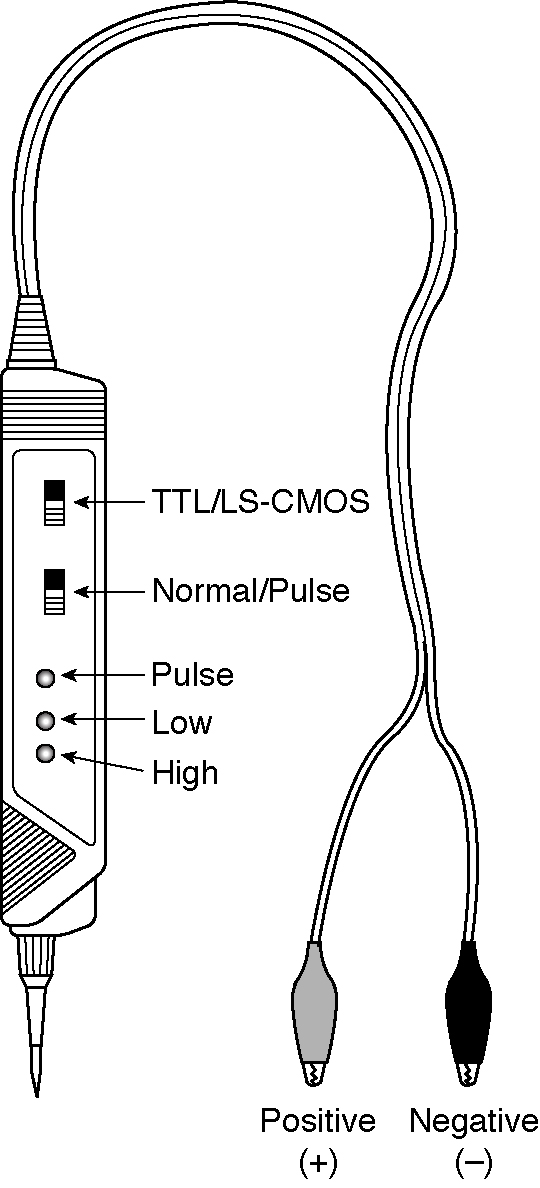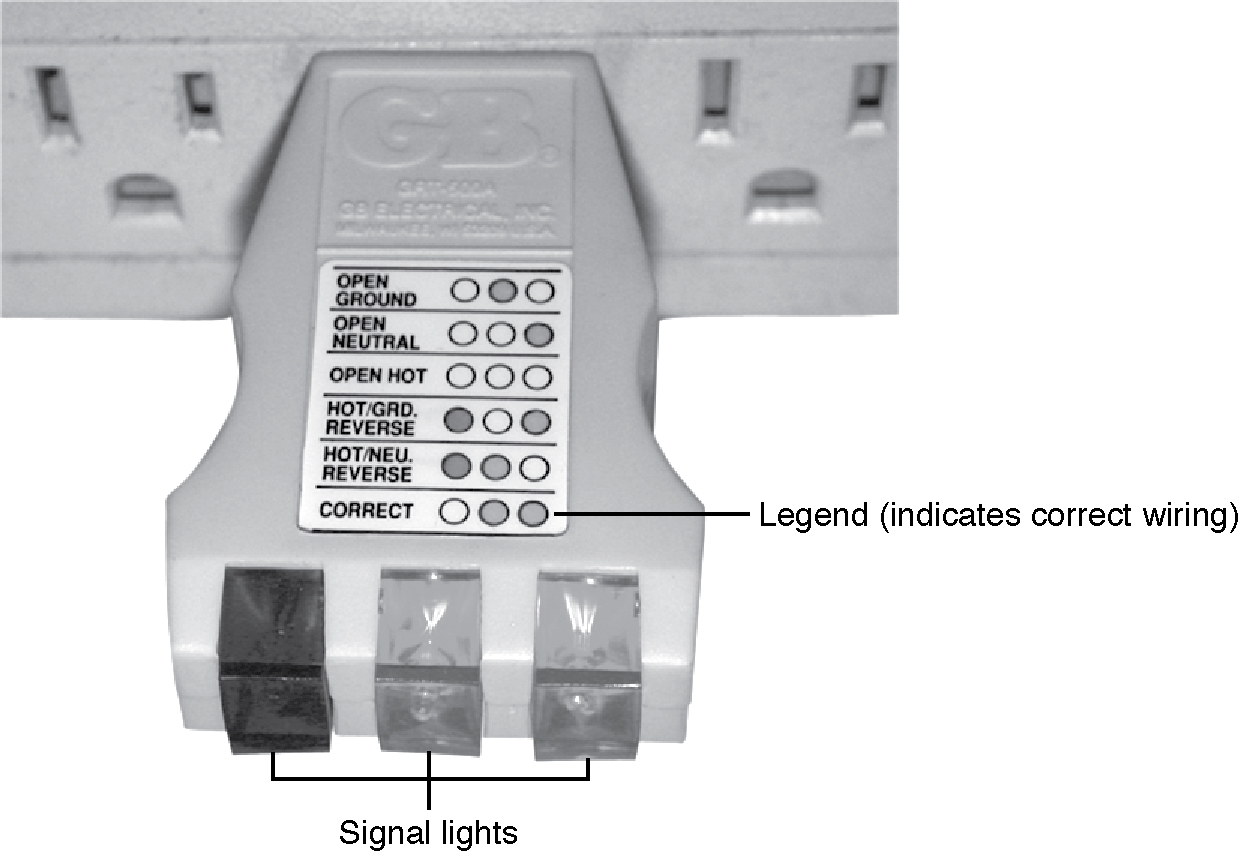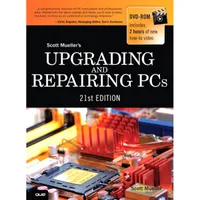Upgrading And Repairing PCs 21st Edition: PC Diagnostics
Test Equipment: Logic Probes, Outlet Testers, And Memory Module Testers
Logic Probes
A logic probe can be useful for diagnosing problems in digital circuits. In a digital circuit, a signal is represented as either high (+5 V) or low (0 V). Because these signals are present for only a short time (measured in millionths of a second) or oscillate (switch on and off) rapidly, a simple voltmeter is useless. A logic probe is designed to display these signal conditions.
Logic probes are especially useful for troubleshooting a dead system. By using the probe, you can determine whether the basic clock circuitry is operating and whether other signals necessary for system operation are present. In some cases, a probe can help you cross-check the signals at each pin on an integrated circuit chip. You can compare the signals present at each pin with the signals a known-good chip of the same type would show—a comparison that is helpful in isolating a failed component. Logic probes also can be useful for troubleshooting some disk drive problems by enabling you to test the signals present on the interface cable or drive-logic board.
Outlet (Receptacle) Testers
Outlet testers (also called receptacle testers) are useful test tools. These simple, inexpensive devices, sold in hardware stores, test electrical outlets. You simply plug in the device, and three LEDs light up in various combinations, indicating whether the outlet is wired correctly (see the figure below).
Although you might think that badly wired outlets would be a rare problem, I have seen a large number of installations in which the outlets were wired incorrectly. Most of the time, the problem is in the ground wire. An improperly wired outlet can result in unstable system operation, such as random parity checks and lockups. With an improper ground circuit, currents can begin flowing on the electrical ground circuits in the system. Because the system uses the voltage on the ground circuits as a comparative signal to determine whether bits are 0 or 1, a floating ground can cause data errors in the system.
Memory Module Testers
For high-volume service shops or large corporate environments servicing many systems, a dedicated memory tester can offer efficiency, performance, and accuracy far beyond running memory test software on a PC. These testers are table-top devices designed to evaluate all types of memory modules and even individual chips. The main drawback is that these testers can be somewhat expensive, costing thousands of dollars, but the cost can be justified for those who need to test a lot of memory quickly and accurately.
Without one of these testers, you are reduced to testing memory by running diagnostic programs on the PC and testing the memory as it is installed. This can be problematic because memory diagnostic programs can do only two things to the memory: write and read. A dedicated memory tester can do many things a memory diagnostic running in a PC can’t do, such as
- Identify the type of memory.
- Identify the memory speed.
- Identify whether the memory has parity or is using bogus parity emulation.
- Vary the refresh timing and access speed timing.
- Locate single bit failures.
- Detect power- and noise-related failures.
- Detect solder opens and shorts.
- Isolate timing-related failures.
- Detect data retention errors.
Conventional memory diagnostic software can’t do these things because it must rely on the fixed access parameters set up by the memory controller hardware in the motherboard chipset. This prevents the software from being capable of altering the timing and methods used to access the memory. You might have memory that fails in one system and works (mostly) in another when the chips are actually bad. This type of intermittent problem is almost impossible to detect with diagnostic software. Two companies making testers include CST and Tanisys.
Get Tom's Hardware's best news and in-depth reviews, straight to your inbox.
For smaller companies, repair shops, and individuals that must rely on PC-based memory testing, I recommend two programs:
- Microsoft Windows Memory Diagnostic - also included in Windows Vista and later versions.
- Memtest86
Both of these programs offer a comprehensive set of memory tests in a bootable CD-ROM format and are available for downloading at no charge. This means that no software needs to be installed on the PC being tested; you merely boot from the test CD and run the diagnostics.
Current page: Test Equipment: Logic Probes, Outlet Testers, And Memory Module Testers
Prev Page Test Equipment: Electrical, Loopback Connectors, And Meters Next Page Special Tools For The EnthusiastTom's Hardware is the leading destination for hardcore computer enthusiasts. We cover everything from processors to 3D printers, single-board computers, SSDs and high-end gaming rigs, empowering readers to make the most of the tech they love, keep up on the latest developments and buy the right gear. Our staff has more than 100 years of combined experience covering news, solving tech problems and reviewing components and systems.



